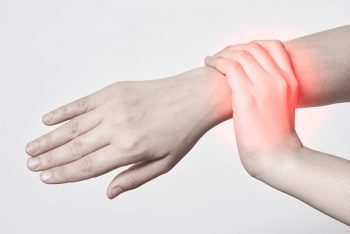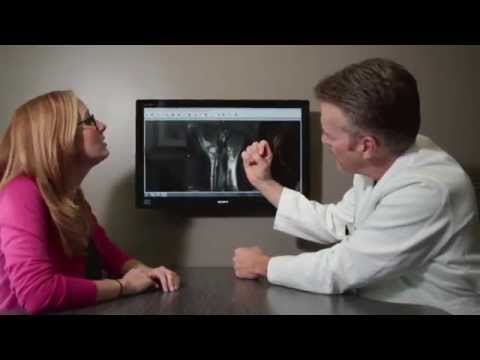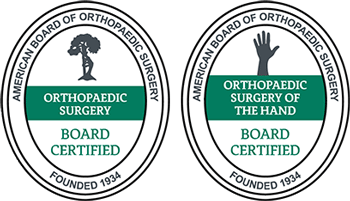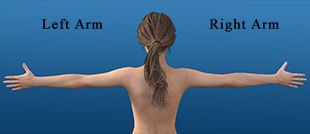Signs You May Have Nerve Damage

“Woman with painful wrist.” By Marco Verch Professional Photographer licensed under CC BY 2.0
Nerves are like tree branches, and your body contains billions of these sensors that transmit messages to your brain. When everything works, your brain will use this information to recognize pain, keep your organs functioning properly, and move your muscles. When the nerves get damaged, it can lead to relentless pain or serious injuries.
Millions of people across the country deal with nerve damage, and if you’re wondering if you could be one of them, you’re in the right place. The Hand and Wrist Institute is skilled in dealing with nerve damage’s causes and symptoms, and our physician, Dr. John T. Knight, specializes in nerve damage to the hands. You should know what to watch for when it comes to nerve damage to prevent further injury.
What Are the Signs and Symptoms of Nerve Damage?
Nerve damage develops slowly, so paying attention to your body and any changes is essential. Treating the causes of nerve damage can be a lot easier than treating it as it worsens. The following are signs of nerve damage:
- You feel a burning sensation, pain, or numbness that won’t go away.
- You regularly drop items that you’re holding.
- You feel like you have a glove in your hand, but you don’t.
- Your hands feel weak.
- You feel a buzzing sensation that is kind of like being shocked.
You may also experience nerve damage due to a traumatic injury, such as crushing your hand in an accident. These injuries should be seen right away to help prevent further nerve damage or permanent loss of sensation in the area.
If you notice any of these signs or symptoms of nerve damage, it’s best to see a doctor. They can help determine the cause of your symptoms and develop a treatment plan. Contact The Hand and Wrist Institute today at 855-558-4263 to schedule an appointment or to speak with one of our professionals.
What Causes Nerve Damage?
Various injuries, illnesses, or medical conditions can cause nerve damage. This occurs because the nerve is compressed, overstretched, damaged, or severed. Some of the common causes of nerve damage include:
- Burns.
- Cuts.
- Crush injuries.
- Impingement of the nerve.
- Carpal tunnel syndrome is a compression-nerve-related disorder typically caused by overuse of the hand.
- Peripheral neuropathy.
- Cubital Tunnel Syndrome.
- Ganglion Cysts.
- Rheumatoid Arthritis.
If you experience an injury, it’s vital to be seen as soon as possible. If symptoms similar to a pinched nerve occur over time and your symptoms begin to disrupt your daily living, it’s time to see a healthcare provider. This includes the inability to perform regular tasks without assistance, management at home has become ineffective, or you begin to experience numbness. Being proactive is a good thing when it comes to your hands.
How Can The Hand and Wrist Institute Help?
If you’ve been experiencing signs or symptoms of nerve damage, it may be time to see a doctor. A detailed history will be taken at your appointment and a clinical exam to help determine what has been injured. Additional testing, such as a nerve conduction velocity test, EMG, or MRI scan, may be required to see the damage physically. If necessary, we can also order x-rays, movement testing, blood tests, and other testing forms to determine the cause and extent of the damage.
What Are the Treatment Options for Nerve Damage?
There are both surgical and nonsurgical treatment options available at The Hand and Wrist Institute for nerve damage. Which will work best for you will depend on your physical exam and whether or not the sheath nerve was damaged.
Nonsurgical options include therapy. If the nerve sheath, which covers the nerve, is still intact, damaged nerves may grow back. Surgery isn’t necessary at this point, but therapy can help a person relearn how to use their joints and hands and reinvigorate the sensation. Muscles will also be stimulated during treatment to help prevent atrophy.
Surgical options include surgery to repair the damaged nerves, which can happen differently. The first option is to reattach the severed nerve endings that have been severed to another, allowing healthy nerve fibers to grow. If a crush injury has occurred and part of the nerve has been lost, it may require a nerve graft.
Depending on the cause of your nerve pain or damage, certain medications may be helpful. Medications may include over-the-counter pain-relieving medications such as aspirin, ibuprofen, naproxen, or Tylenol. Prescription medications may also be beneficial for specific conditions. A doctor can determine which, if any, may help your condition.
Great care needs to be taken quickly when nerve damage occurs due to trauma. A combination of treatment options may help you get the relief you need. Time is of the essence with nerve damage, and the faster you can take care of it, the quicker you can get back to living life as usual. Dr. Knight has extensive experience in the field. Contact us today if you want to schedule an appointment at our Dallas or Southlake offices.
Contact The Hand and Wrist Institute Today
Contact The Hand and Wrist Institute Today if you’re experiencing any of the symptoms mentioned above and believe you may have nerve damage. We’re one of the leading medical practices in the region and are dedicated to diagnosing and treating hand and wrist conditions, including those that can cause numbness. Our skilled physician, Dr. Knight, is a board-certified orthopedic surgeon and has the experience, knowledge, and equipment necessary to perform whatever treatment is suitable for your specific situation.
If you’re ready to schedule your appointment, please don’t wait to give us a call at 855-558-4263 or 817-835-9930. You can also send us a message online through our secure messaging system, and someone will respond promptly. Our convenient, state-of-the-art facilities were designed to treat your hand symptoms better and enable our patients to get back to life as usual. We want to help you so that no injury or pain can stop you from living your best life possible.

























